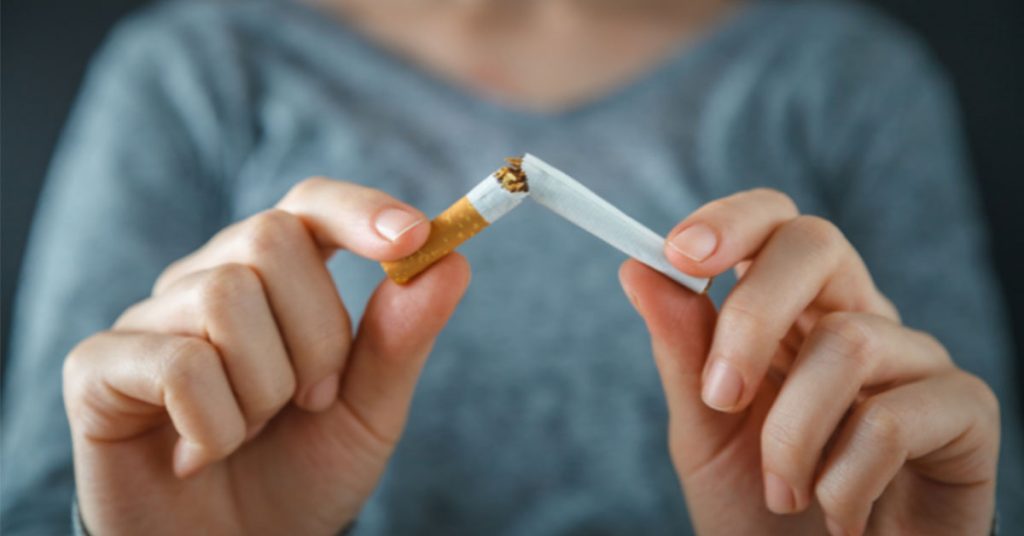Smoking, a habit known for its detrimental effects on health, is commonly associated with serious conditions like lung cancer and heart disease. However, there is one aspect often overlooked when discussing the consequences of smoking: its impact on oral health. Among the discomforts experienced by smokers, dry mouth, scientifically referred to as xerostomia, is a prevalent issue.
In this article, we will delve into the intricate relationship between smoking and dry mouth. We will explore the causes, symptoms, and viable solutions for addressing this oral health concern. So, let’s shed light on this often-neglected aspect of smoking and its potential impact on dry mouth.
The Link Between Smoking and Dry Mouth
Smoking cigarettes can significantly contribute to the occurrence of dry mouth, as the chemicals present in tobacco disrupt saliva production and quality. This leads to a lack of moisture in the mouth, causing discomfort and potential oral health issues.
To grasp the connection between smoking and dry mouth, it’s essential to understand the role saliva plays in oral health. Saliva serves numerous crucial functions, including lubricating the mouth, facilitating swallowing, neutralizing acid, and preventing bacterial growth. When the salivary glands fail to produce enough saliva, the mouth becomes dry, leading to a range of uncomfortable symptoms
How Does Smoking Contribute to Dry Mouth?
Smoking cigarettes involves inhaling a multitude of harmful chemicals, including nicotine, tar, and carbon monoxide. These substances have detrimental effects on saliva production and the overall oral environment. Saliva plays a crucial role in maintaining oral health as it helps to cleanse the mouth, neutralize acids, and prevent the growth of harmful bacteria. However, smoking disrupts this delicate balance.
When a person smokes, the chemicals present in cigarettes can cause the salivary glands to produce less saliva. This reduction in saliva flow leads to a dry mouth, which can be extremely uncomfortable. Furthermore, smoking also affects the quality of saliva, making it thicker and stickier. As a result, saliva becomes less effective in lubricating the mouth and protecting the teeth and gums.
The Vicious Cycle of Smoking and Dry Mouth
A dry mouth caused by smoking can create a vicious cycle. Smoking leads to a decrease in saliva production, and a dry mouth, in turn, increases the risk of dental problems. Without sufficient saliva, the mouth becomes an ideal environment for bacteria to thrive. This can result in a variety of oral health issues, including tooth decay, gum disease, and bad breath.
Additionally, a dry mouth makes it more difficult to chew and swallow food properly, impacting overall nutrition and potentially leading to weight loss or malnourishment.
Furthermore, dry mouth can contribute to an increased risk of developing oral infections, such as oral thrush, due to the compromised immune system of the oral cavity.
Can Smoking Cause Dry Mouth?
The short answer is yes, smoking can cause dry mouth. However, it is important to note that not all smokers will experience this symptom, as individual responses to smoking can vary.
Nevertheless, smoking remains a significant risk factor for developing dry mouth, and those who do experience it should take necessary steps to alleviate the discomfort and prevent further complications.
Recognizing the Symptoms
Dry mouth caused by smoking can manifest through various signs and symptoms, which may include:
- Persistent thirst: Individuals experiencing dry mouth due to smoking often find themselves frequently reaching for a drink to quench their thirst.
- Sticky or dry feeling: The mouth may feel sticky or dry, making it uncomfortable to speak, swallow, or eat.
Difficulty speaking: Dry mouth can affect speech, leading to difficulties in articulation and pronunciation. - Halitosis: Reduced saliva flow allows bacteria to proliferate in the mouth, leading to bad breath.
- Increased dental problems: Without adequate saliva to wash away food particles and neutralize acids, smokers with dry mouths are more susceptible to tooth decay, gum disease, and oral infections.
Addressing Dry Mouth from Smoking
While quitting smoking is the most effective way to alleviate dry mouth and improve overall health, there are other strategies individuals can employ to manage this condition:
Quitting Smoking: The Ultimate Solution
The most effective way to combat dry mouth caused by smoking is to quit smoking altogether. By quitting smoking, you not only reduce your risk of dry mouth but also improve your overall oral and general health. It can be challenging to quit smoking, but with determination and support, it is an achievable goal that brings numerous benefits.
Hydration: Drink Plenty of Water
Staying well-hydrated is crucial for combating dry mouth. Make it a habit to drink plenty of water throughout the day, especially when engaging in activities that can lead to dehydration. Dehydration cause dry mouth so always carry a water bottle with you to ensure regular intake. Thus, drinking water helps moisten the mouth, wash away debris, and stimulate saliva production
Avoid Alcohol and Caffeine
Both alcohol and caffeine can contribute to dehydration and exacerbate dry mouth symptoms. Therefore, it is advisable to limit your consumption of alcoholic and caffeinated beverages. Instead, opt for non-alcoholic and decaffeinated alternatives to keep your mouth hydrated and reduce the discomfort associated with dry mouth.
Explore: How much caffeine is too much?
Use Dry Mouth Sprays and Products
Dry mouth sprays and products, such as specially formulated mouthwashes and toothpaste, can provide temporary relief from dry mouth symptoms. These products often contain ingredients that help to stimulate saliva production and moisturize the mouth. Consider using a dry mouth spray or other relevant products as part of your daily oral care routine.
Smoking unquestionably has a detrimental impact on oral health, and dry mouth is just one of the many consequences. The chemicals in cigarettes can disrupt saliva production, lead to dehydration, and irritate the oral tissues. Smokers need to be aware of the symptoms of dry mouth and take proactive measures to address the issue.
Quitting smoking is undoubtedly the best course of action, as it not only helps alleviate dry mouth but also improves overall health and reduces the risk of numerous other smoking-related diseases. By taking steps to manage dry mouth and seeking professional guidance, individuals can mitigate the discomfort and potential oral health problems associated with smoking-induced dry mouth.
Lubricity is a Proud Supporter of the
Lubricity Premium Dry Mouth Spray
Take control of your dry mouth with Lubricity!
Interested in trying Lubricity?
What do customers say about Lubricity Dry Mouth Spray?












